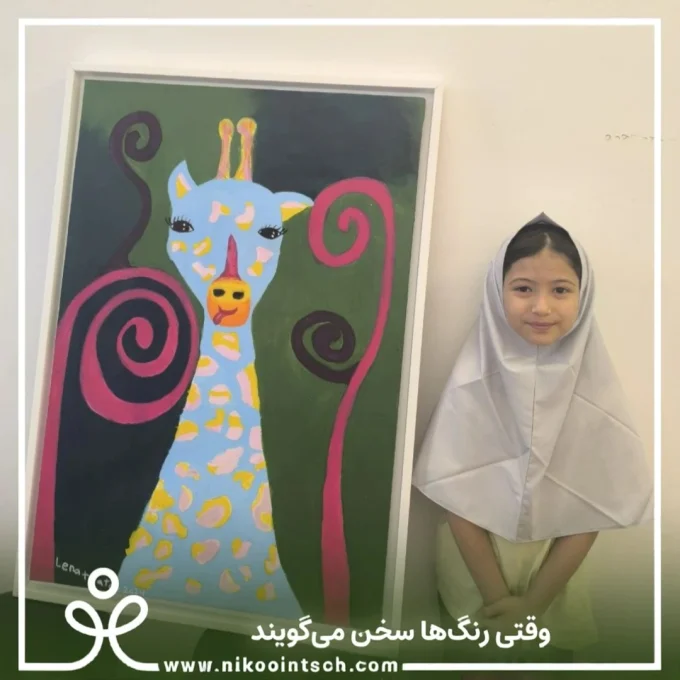Author: Mr. Ebrahim Aslani
Educational Psychologist
Educational behaviors are guided by educational goals
It was supposed to be…
When we were children, our parents wished for us to become good people. As we grew older and reached youth, their wishes shifted to our happiness. For the later years, if parents were still alive, they hoped to see signs of maturity and completeness in their children. In any case, in all years, there were always traces of “humanity” in parents’ wishes; even if they desired wealth and comfort for their children, humanity (becoming a good person, happiness, and maturity) was paramount.
What do we wish for our children now? How closely have you examined the words we use to express our wishes: success, happiness, victory, superiority, fame, wealth, and so on? Have you considered the nature of our wishes?
Unclear Wishes
Sometimes, we are confused and uncertain about what we wish for our children. Perhaps the most common and simplest word for wishes concerning our children is “happiness,” but happiness means different things to different people, and the nature of happiness is not the same for everyone. It is natural and expected that interpretations of happiness vary across times and societies, but generally, there is at least one normative interpretation accepted by the majority. In our previous generations, the interpretation of happiness was more or less consistent, and when discussing the future and happiness of children, almost everyone understood what was being referred to. In today’s culture, happiness has a diverse and wandering concept.
I want to say that it would be good to revisit our wishes for our children’s future. Why are we raising children? What do we wish for them today and tomorrow? What is the essence and focus of these wishes? Are these wishes the result of the dominant culture and prevailing social norms, or are they based on independent thought?
Many of the confusions in education stem from ambiguity in educational goals; goals that we often express as wishes. The older generations had specific wishes for their children’s future, wishes that typically prioritized humanity and spirituality over job, money, and comfort. They raised children according to those wishes. We neither have specific wishes nor a firm belief in what constitutes a good future, nor do we realize that educational behaviors are guided by educational goals.
I Have a Child
To clarify our stance on parenting and education, we must be decisive and serious. About whom? Ourselves! I have a child, and I am responsible for their upbringing. Their future is important, but more importantly, their present is crucial. If I don’t think and act correctly today, more problems will arise tomorrow, both for them and for me.
To overcome ambiguity and confusion in educational goals, here are a few recommendations:
۱- Educational Understanding
Before knowing what to do with our children and how to raise them, we need to assess ourselves to understand where we stand in life, what guides our life, and what our interpretation of a good future and happiness is. Believe me, it’s a very important matter, provided you believe that having and raising children is crucial. Educational understanding means being sensitive about having a child and taking this responsibility seriously. Many of our social and cultural issues stem from parents and educators who lack proper educational understanding and harm children through negligence, incompetence, and mistakes.
To enhance educational understanding, parents should not only increase their personal sensitivity regarding upbringing but also read credible resources on parenting, child and adolescent psychology, and principles and methods of child-rearing. If possible, they should participate in useful parenting courses and workshops.
۲- Educational Principles
Educational understanding will be fruitful only when parents recognize the general frameworks and rules of upbringing, or better said, the principles of education. For example, one principle is the “principle of activity,” which states: Let the child be free and allow them to experience and experiment on their own. Don’t rush to teach. Another principle is the “principle of authority,” which suggests: Based on the child’s age and readiness, set valid rules for their behavior for them to follow.۱
These principles serve as a guide for parents and educators in raising children and significantly enhance their educational understanding. For instance, when parents accept that one of the principles of upbringing is “mutual respect between parents and children,” they will naturally be less likely to demean or insult the child.
۳- Educational Goals
Actually, take a pen and paper and write it down. It’s worth spending hours on this topic. First, each parent should individually write down their views, expectations, wishes, and goals. Then, compare and identify common and differing points. Finally, reflect and think about how well your initial ideas and thoughts align with what has been written and revealed. Are there any goals you have overlooked or neglected? What serious revisions and reconsiderations are needed?
* The author’s wish! I hope parents read this together, make decisions together, and act together. I mentioned that educational behaviors are guided by educational goals, and I emphasize that coordination between parents is very, very important in setting educational goals.
Footnotes:
- Adapted from the book “Principles and Foundations of Education” by Dr. Gholamhossein Shokoohi, published by Behnashr.
- A useful resource for understanding educational principles is the book “Principles of Establishing Human Relations with Children and Adolescents” by Dr. Ahmad Behpooy, published by Danjeh.












